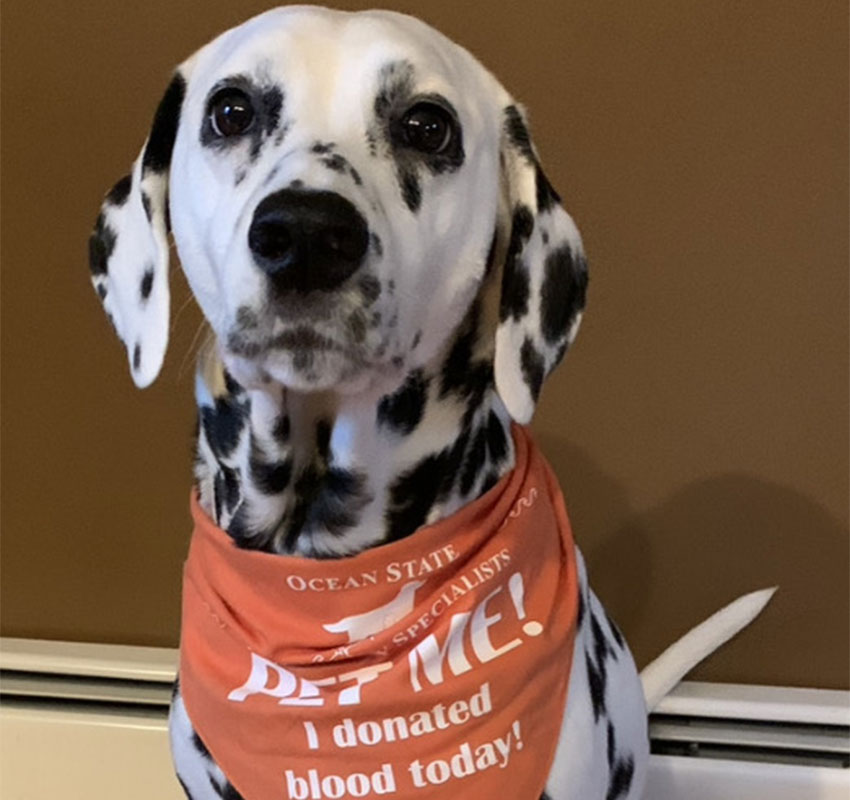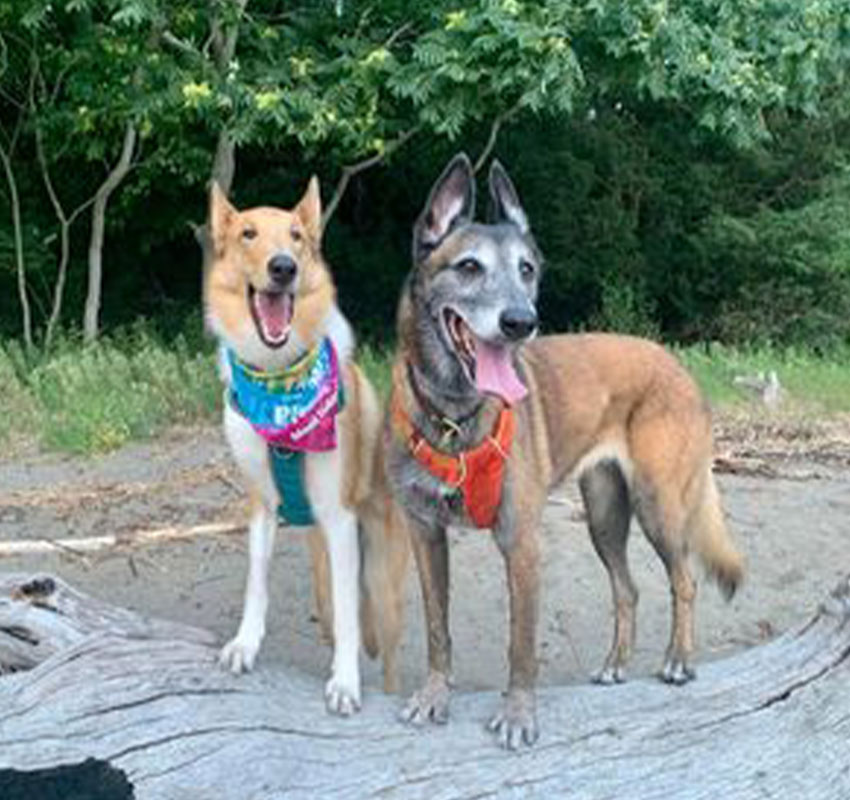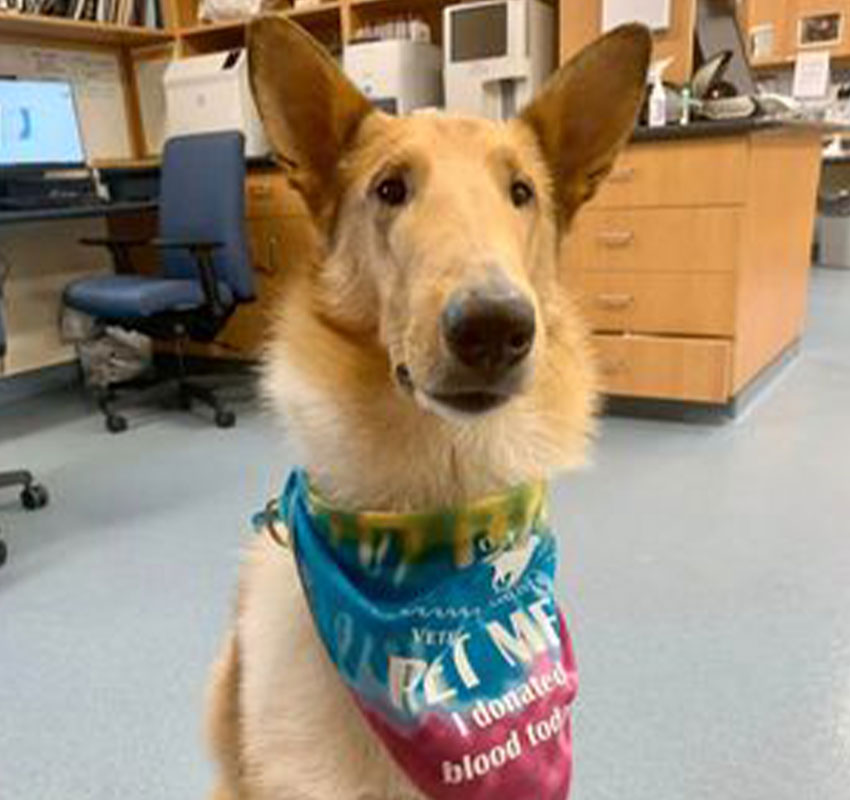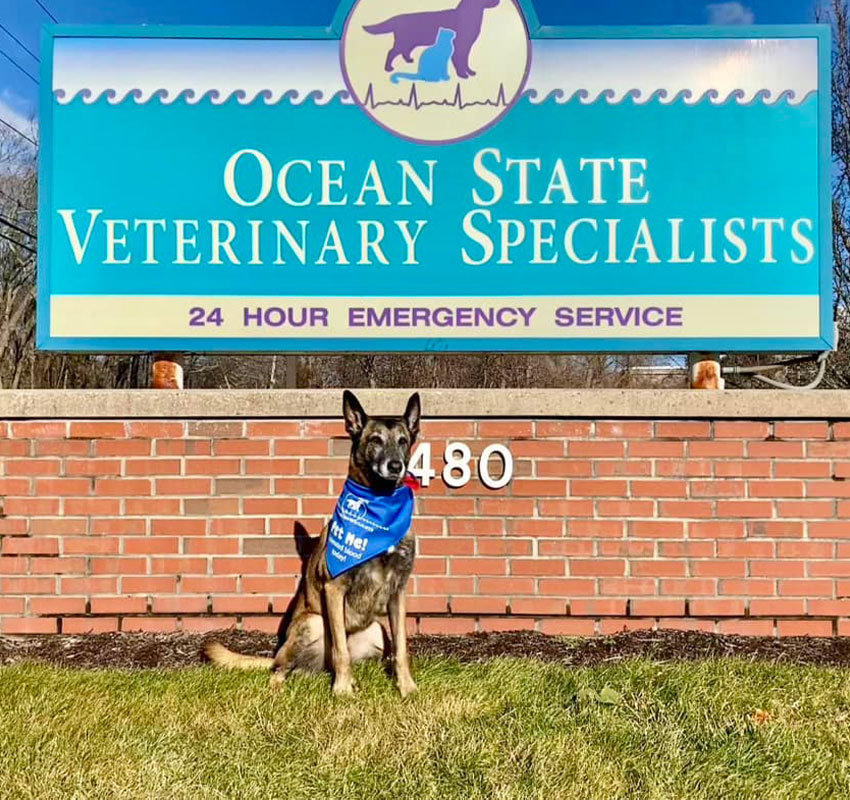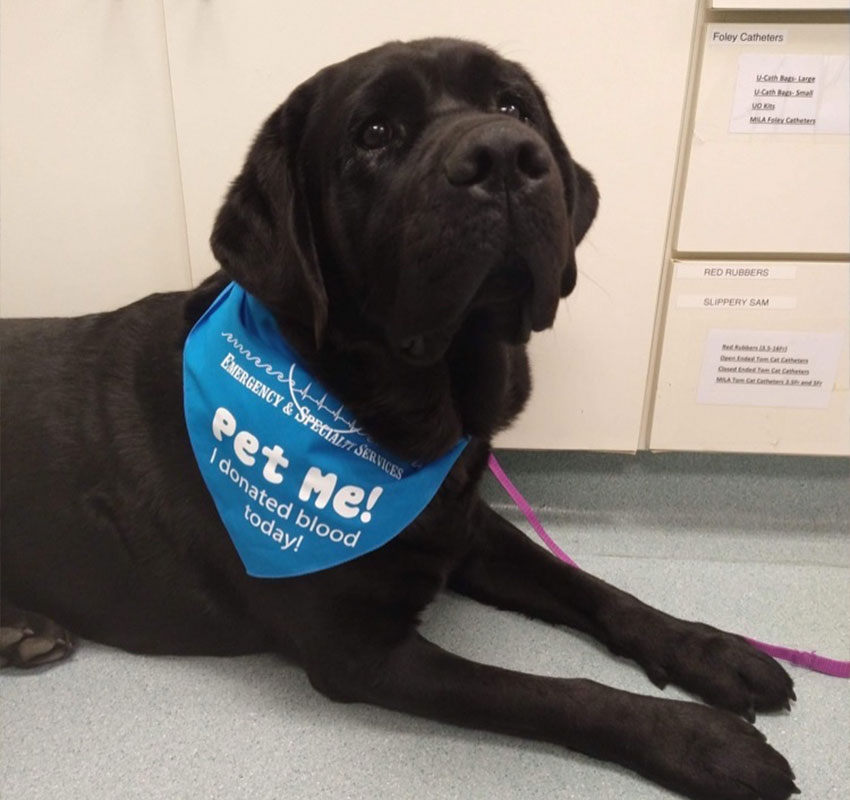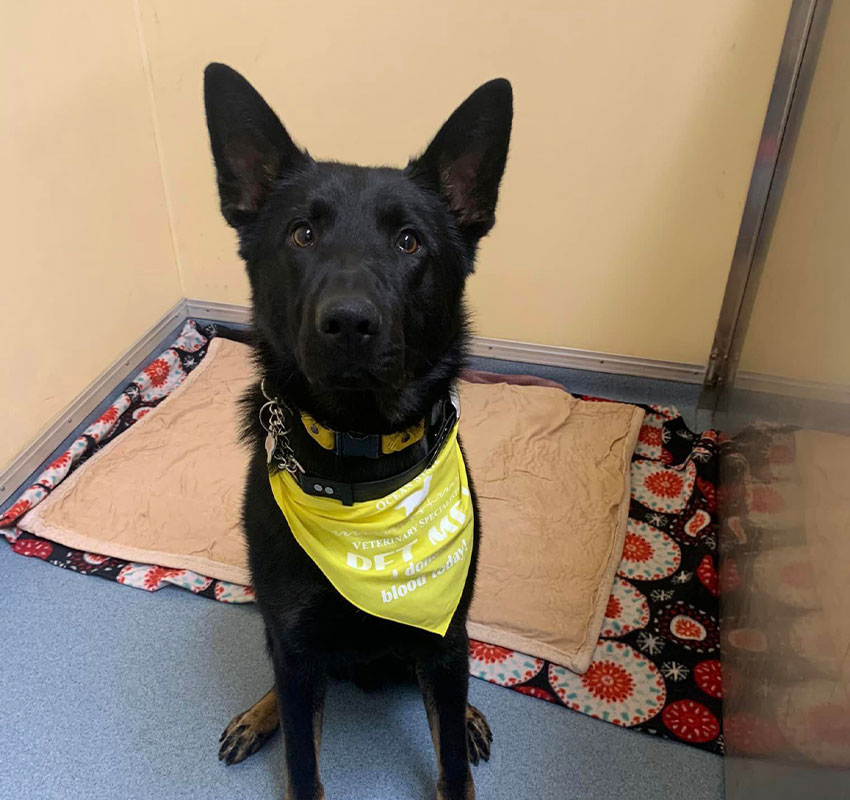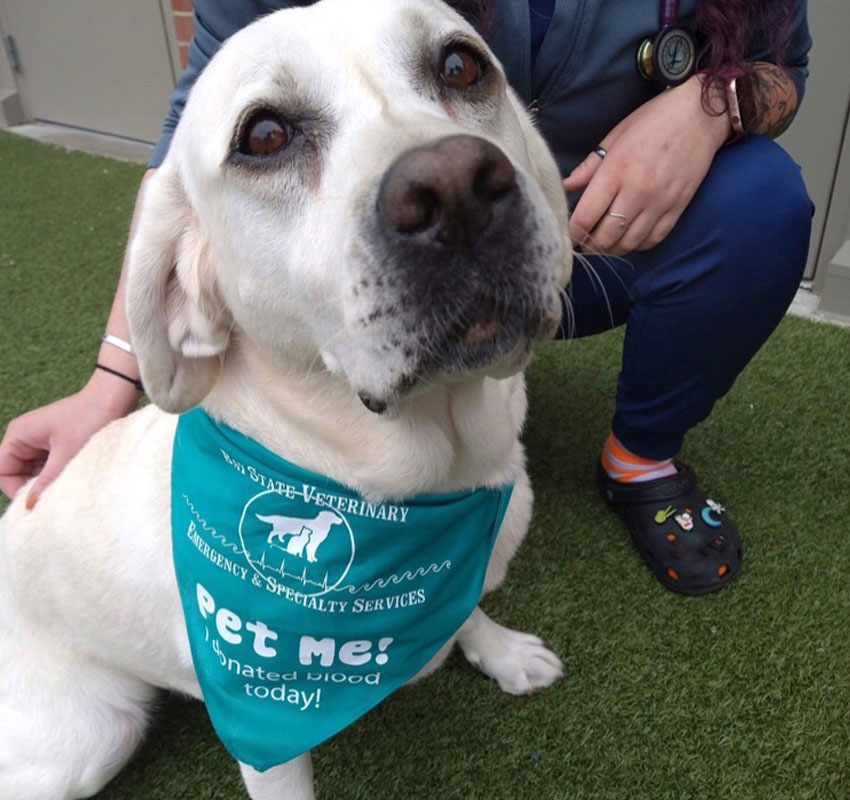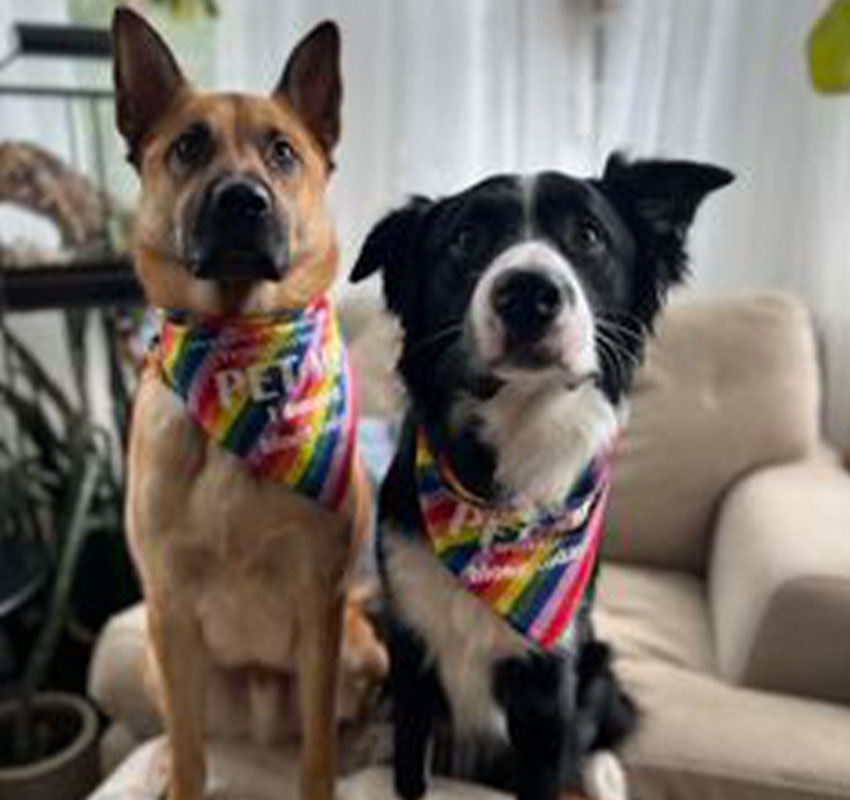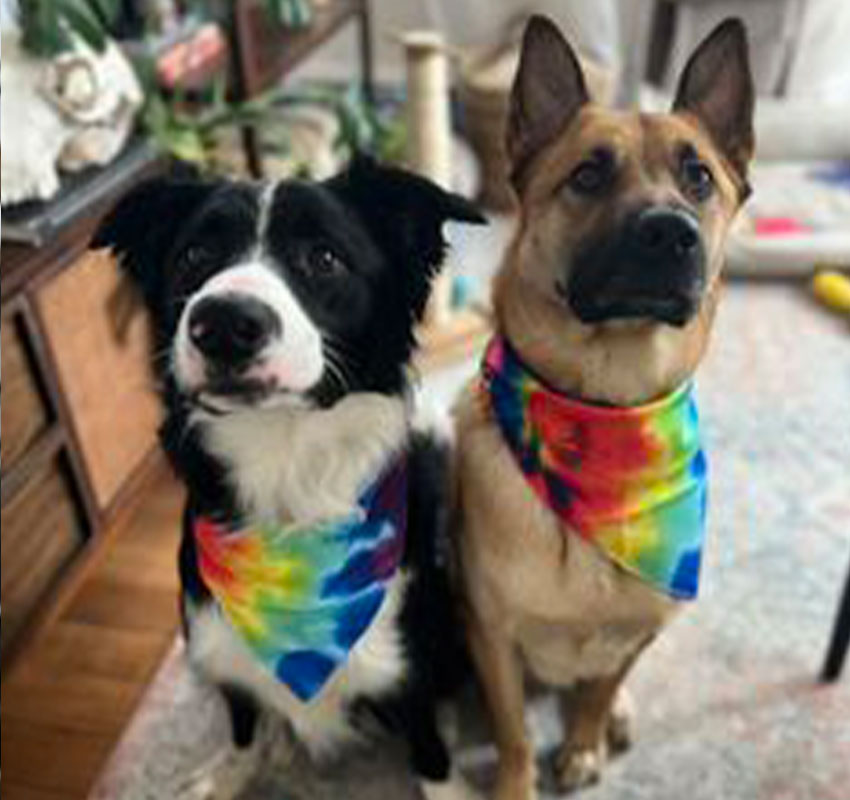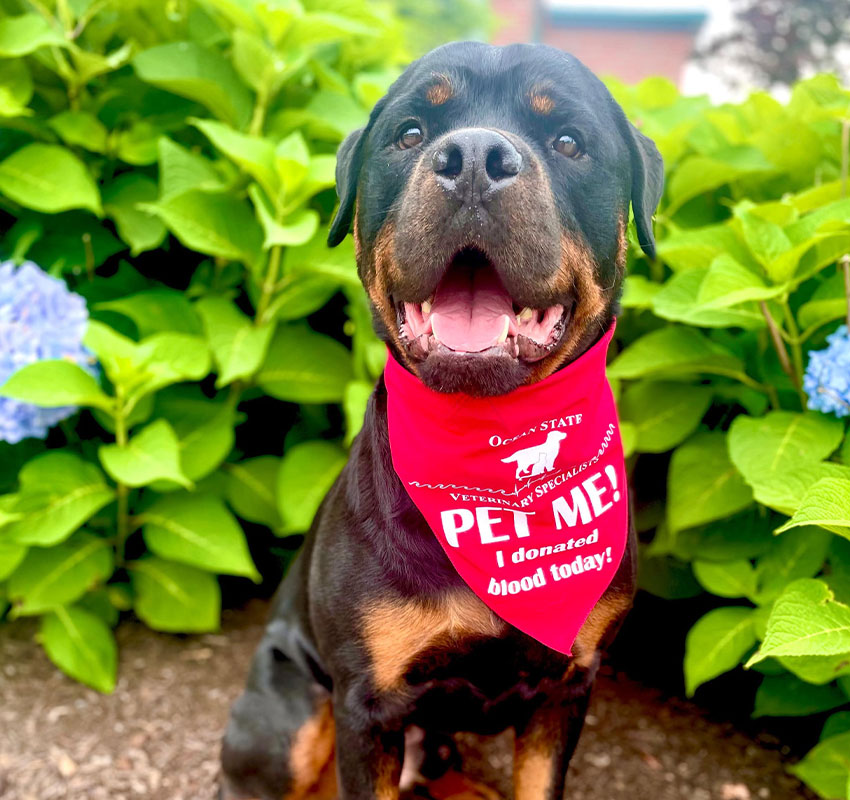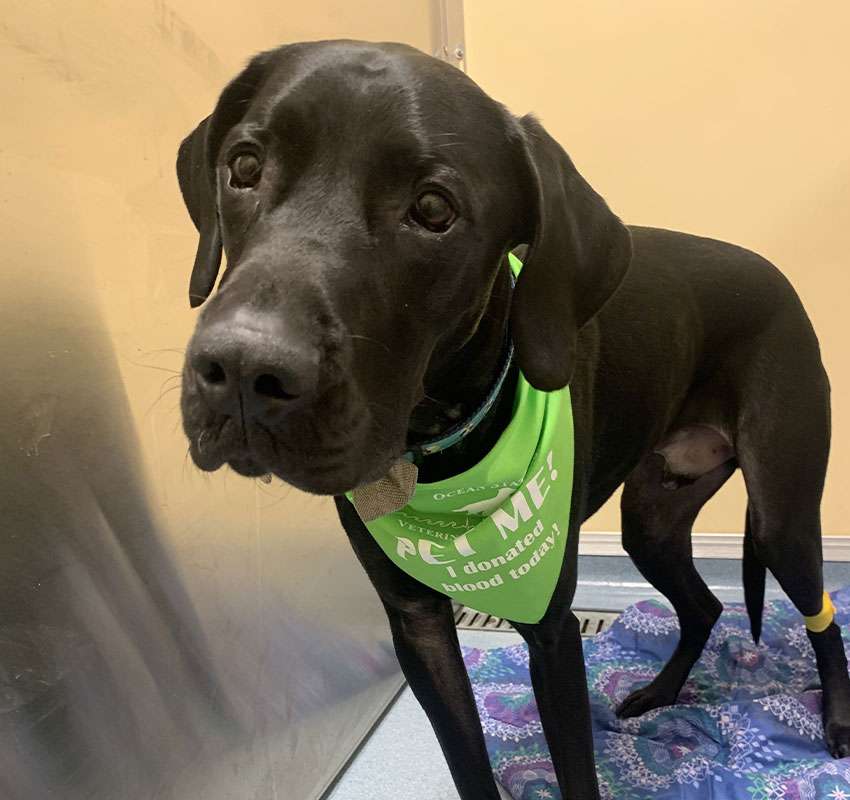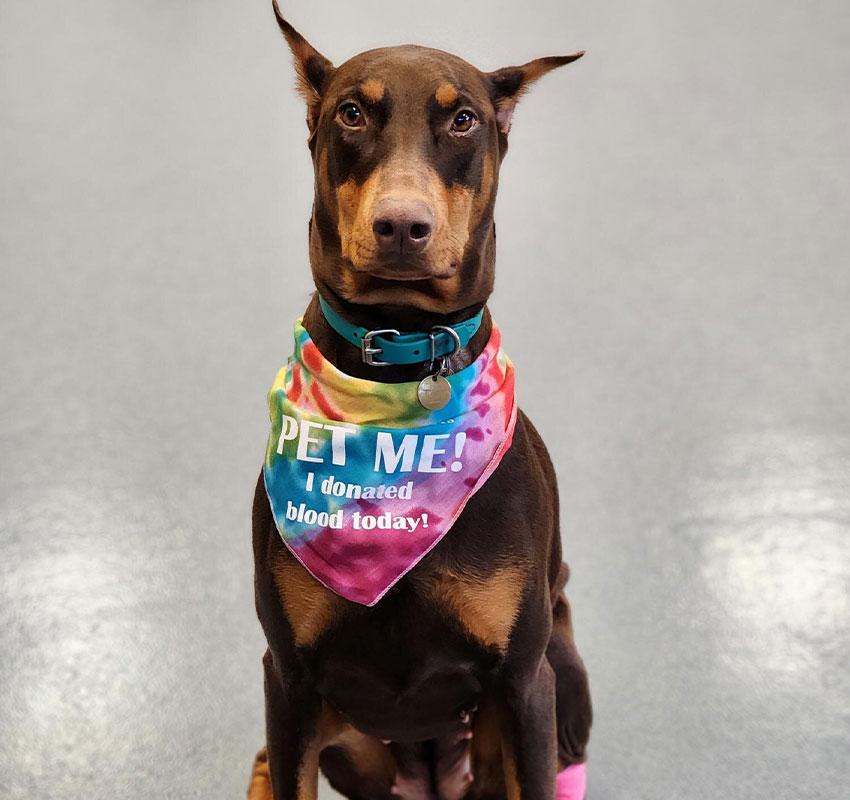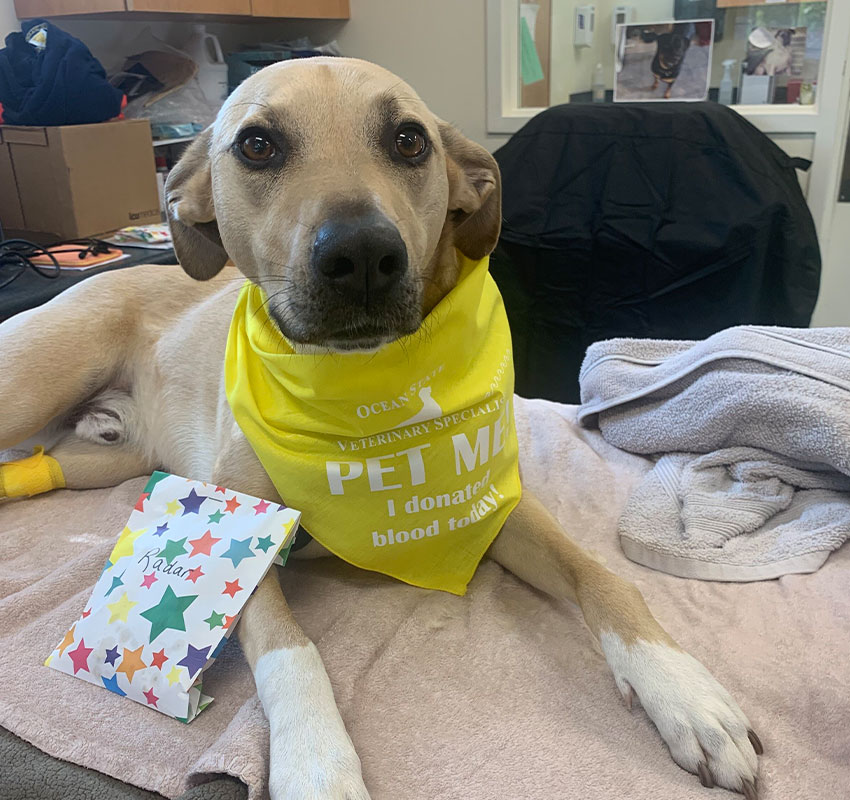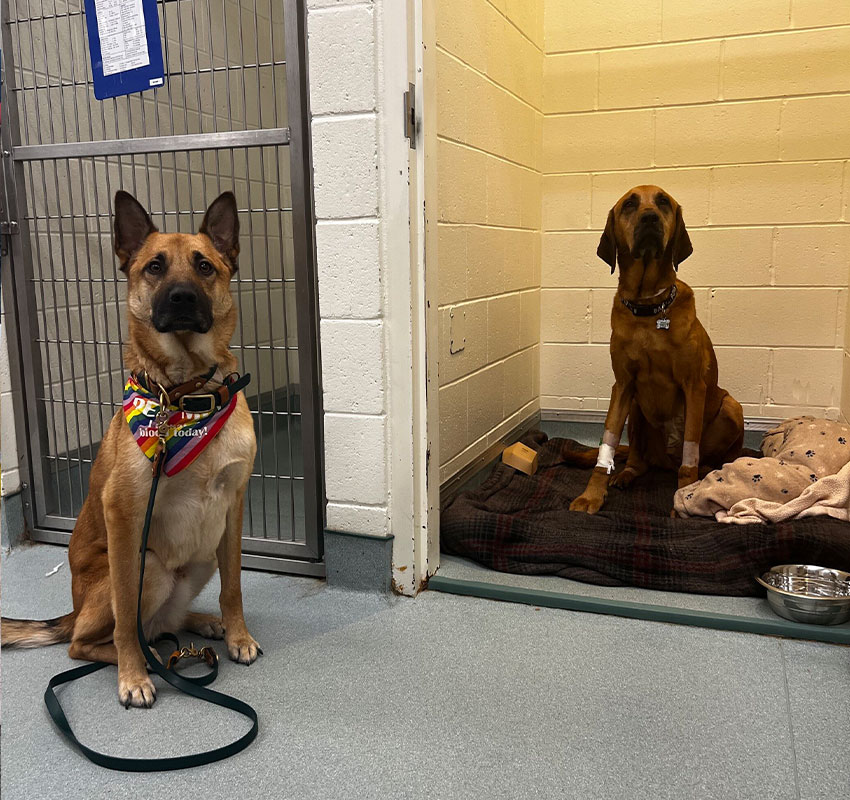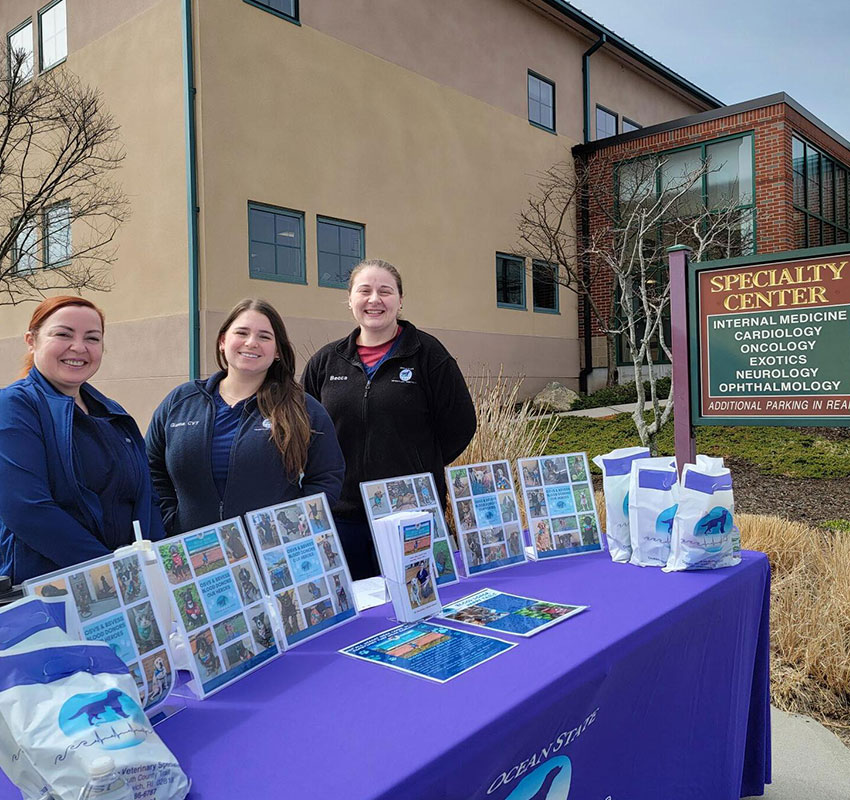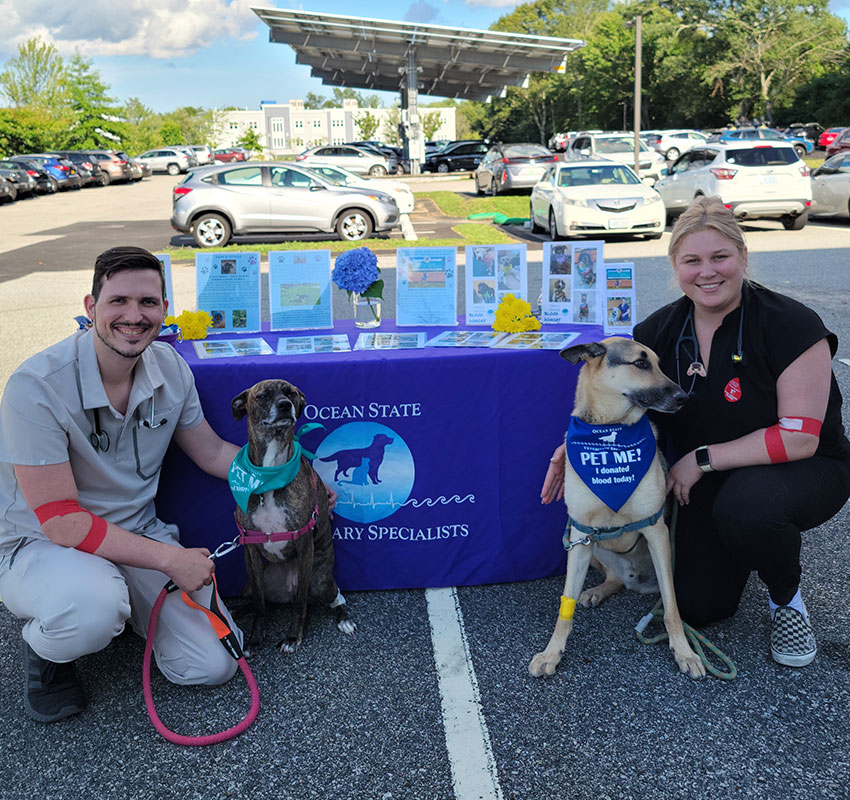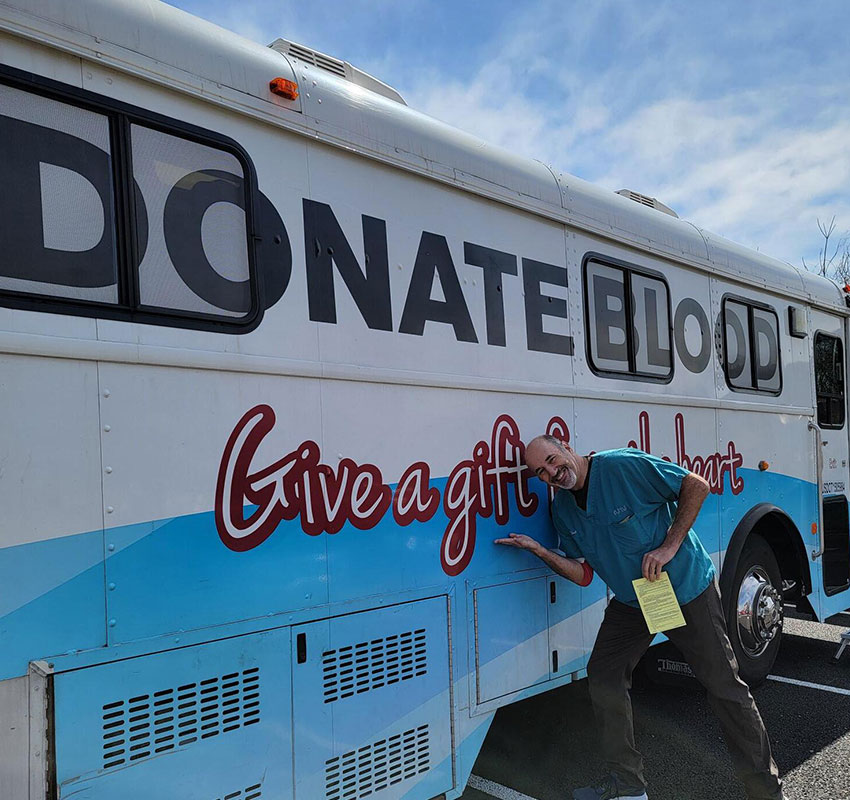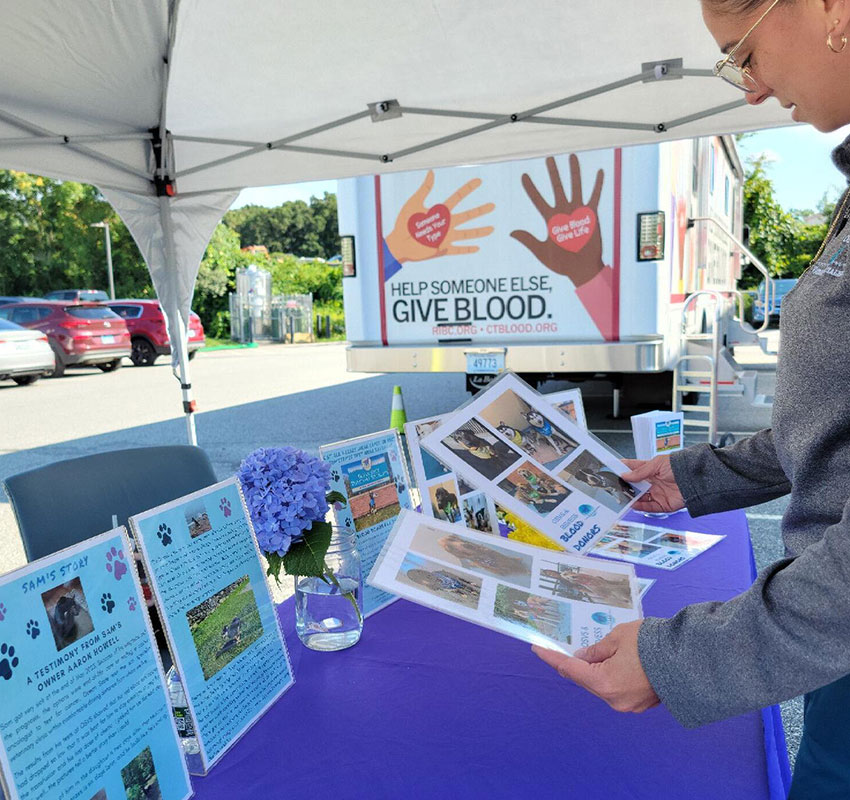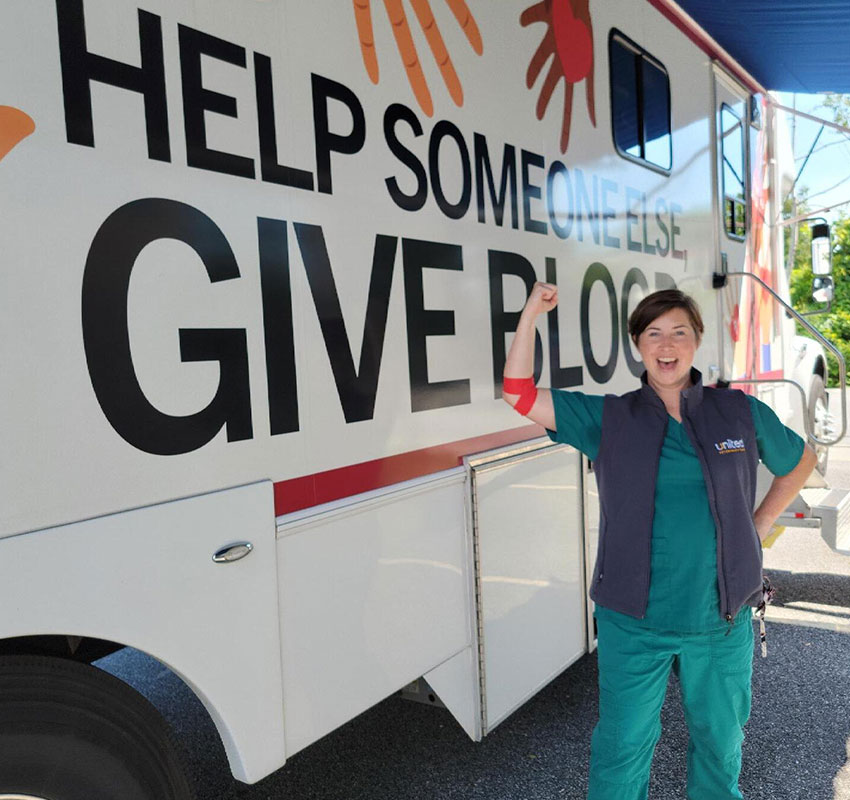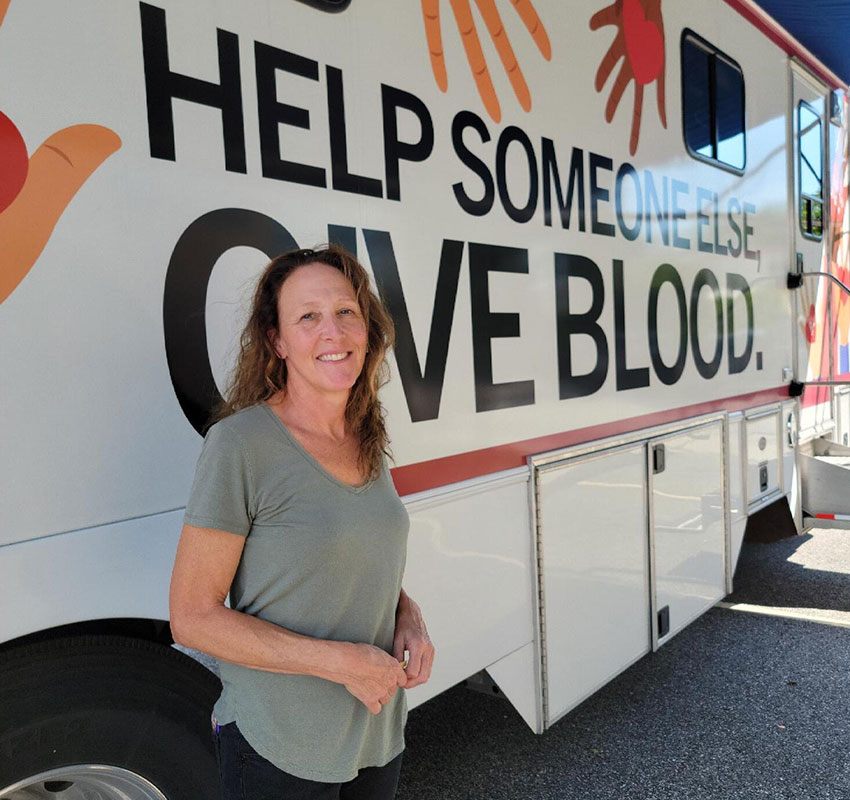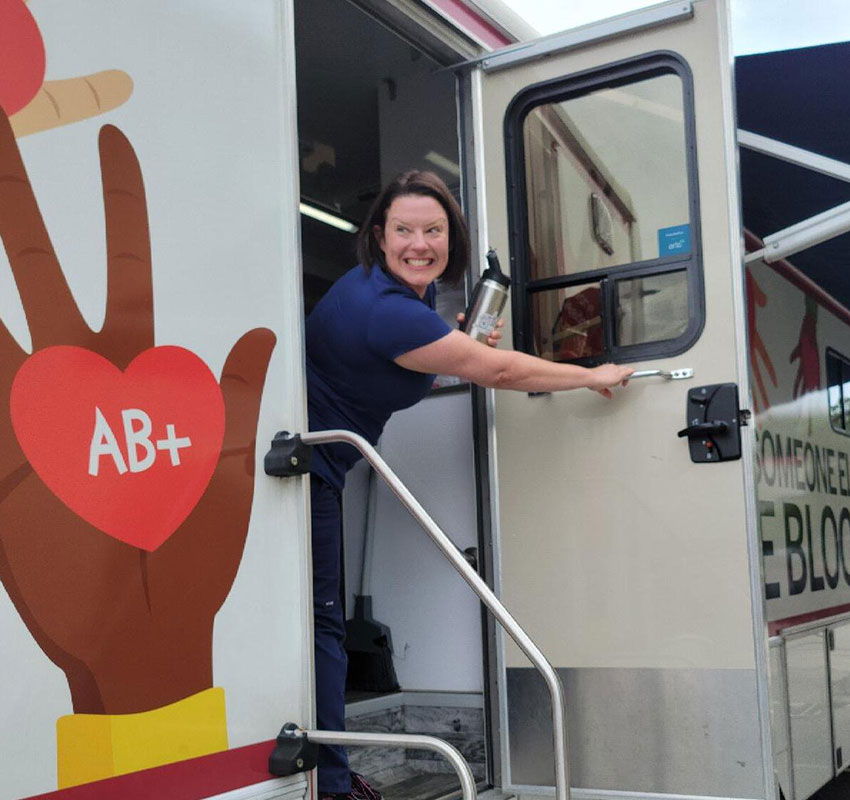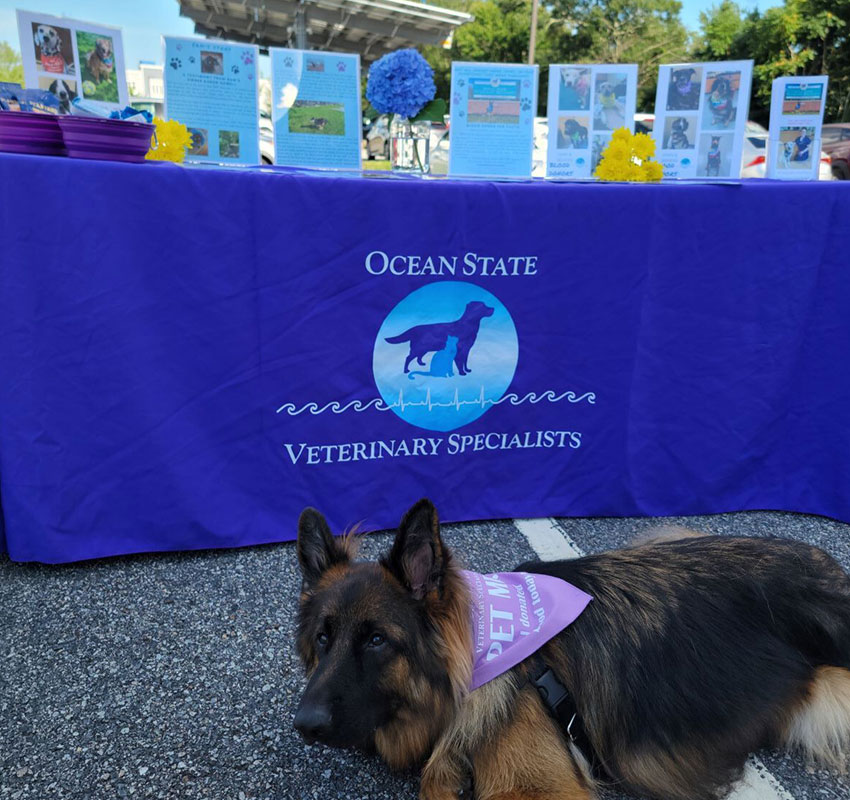Can My Dog Be A Hero?
OSVS depends on the generosity and cooperation of a group of dogs and their owners – who truly are the heroes ensuring that we have life-saving blood components available at all times.
Donor dogs must weigh more than 50 pounds and be between the ages of 1 year and 8 years old. Donors must have a good overall temperament, be in good health, and up to date on vaccines (although they cannot donate within the month after vaccination). Dogs should be currently maintained on heartworm prevention and should not be on any other medications other than flea and tick products. Females cannot donate if they have ever been pregnant as this makes their blood undesirable for transfusion to another dog.
Owners must be willing to bring their dogs in for at least three donations per year. This is because the screening process for each dog is expensive. If a dog does not donate three times in a year, the owner will be financially responsible for a portion of the screening tests. Dogs that donate at least three times a year qualify for our incentive program (explained fully in our informational brochure).
For more information on the donation process, please read Ocean State Veterinary Specialists’ informational brochure.
If you are interested in enrolling your dog in the program, please email our blood bank at bloodbank@osvs.net. or phone 401-886-6787 ex.109
Can My Dog Be A Hero?
OSVS depends on the generosity and cooperation of a group of dogs and their owners – who truly are the heroes ensuring that we have life-saving blood components available at all times.
Donor dogs must weigh more than 50 pounds and be between the ages of 1 year and 8 years old. Donors must have a good overall temperament, be in good health, and up to date on vaccines (although they cannot donate within the month after vaccination). Dogs should be currently maintained on heartworm prevention and should not be on any other medications other than flea and tick products. Females cannot donate if they have ever been pregnant as this makes their blood undesirable for transfusion to another dog.
Owners must be willing to bring their dogs in for at least three donations per year. This is because the screening process for each dog is expensive. If a dog does not donate three times in a year, the owner will be financially responsible for a portion of the screening tests. Dogs that donate at least three times a year qualify for our incentive program (explained fully in our informational brochure).
For more information on the donation process, please read Ocean State Veterinary Specialists’ informational brochure.
If you are interested in enrolling your dog in the program, please email our blood bank at bloodbank@osvs.net. or phone 401-886-6787 ex.109
Not all heroes wear capes. In fact, sometimes they wear bandanas.
- 1 blood donation can save 4 different dogs
- We have 50 dogs in rotation donating blood each year
- The need for blood and plasma includes; trauma with blood loss, a ruptured spleen or liver causing internal bleeding, blood loss due to cancer, red blood cell loss due to immune-mediated diseases, bone marrow disease, bleeding disorders, liver failure, hemophilias as well as many other serious conditions.
- In 2022 at OSVS alone we used: pRBC 490, plasma 417, platelets 18, Albumin 63, whole blood 12
- Ocean State Veterinary Specialists and Rhode Island Blood Center join forces for staff blood drive!
Ocean State Veterinary Specialists and Rhode Island Blood Center join forces for staff blood drive!
Ocean State Veterinary Specialists (OSVS) proudly continues its bi-annual Staff Blood Drive in partnership with the Rhode Island Blood Center, where our dedicated staff generously roll up their sleeves to donate blood. This event is a testament to our team’s commitment to saving lives. While this effort directly benefits human lives, OSVS, along with our sister hospital, Bay State Veterinary Emergency and Specialty Services, also operates a comprehensive blood bank program for animals. Each year, approximately 50 dogs and cats contribute to this program, with each donation having the potential to save up to four lives. We are incredibly grateful to our blood bank donors and recognize the vital role blood donations play in our community. At OSVS, we are committed to making a difference by helping save both human and animal lives!



